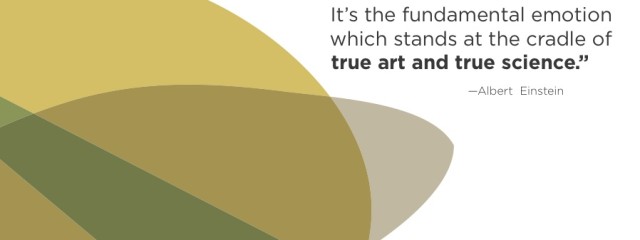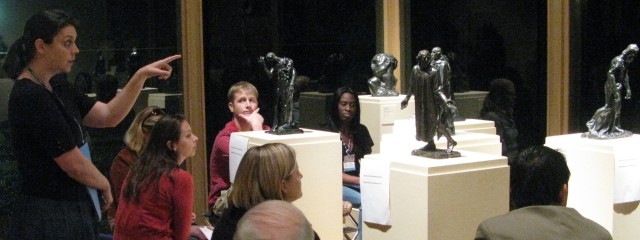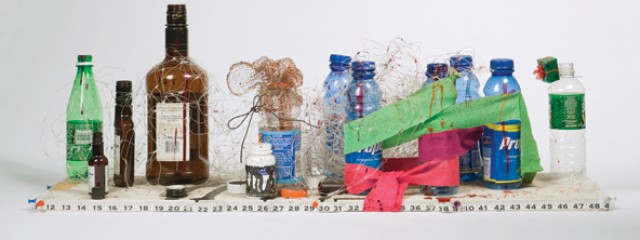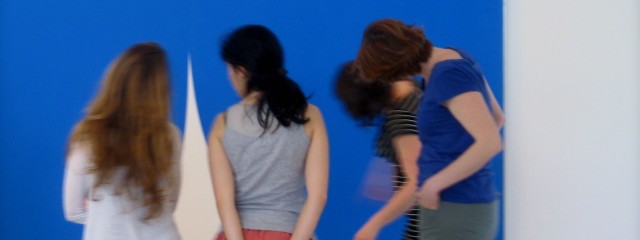Earlier this week I had the privilege of hearing Drs. Leana Wen and Joshua Kosowsky—the authors of When Doctors Don’t Listen: How to Avoid Misdiagnoses and Unnecessary Tests—speak. It was moving to see two MDs pounding the pavement with an urgent appeal to patients: speak up! Your voice is critical to the diagnosis process. Here […]Continue Reading
ArchivesAuthor: Alexa Miller
09JanFresh Eyes

“Let the familiar become strange and the strange familiar — the two rules of creativity.” –Sam Keen, 1991 One of my best collaborators in the work of art-viewing lives with extreme visual impairment. One of the things I appreciate about working with him is the renewed sense of focus on what the work is […]Continue Reading
02JanHappy New Year!

I kicked off 2013 with a new tradition for Arts Practica – New Years cards! I created them in gratitude to friends and colleagues making the world better – and then sent them all over that very world. I chose this quote by Einstein to share because I love it so: I love it because […]Continue Reading
27NovA Royal Owie: Shame in teaching and learning
I’m at home, recovering from an unexpected surgery. And doing really well (Joy! Relief! Terror. Oh my lucky stars. I live in Boston and have access to great care.) Resting at home has brought the joy of sweet time to consume things, like books, soup, and the company of soup-bearing dear ones. Workout videos bearing […]Continue Reading
21NovHappy Thanksgiving!
Ok, so despite the fact that surveillance scares the bejeezus out of me, I do love this video. I do love how what we see reminds us of all of the parts of being alive. Happy holidays, friends. Here’s to looking around at life! Best wishes for a restorative break.Continue Reading
25SepWhy do the arts matter to medicine?
Short answer: because creative skills are essential to successful medical practice; they are easily and authentically learned in art. See below for some key studies that inform my opinion that quality clinician attention may be healthcare’s greatest resource, and art has a role in the development of quality attention. Long answer: Watch a video of a panel […]Continue Reading
21AugAre you an art museum educator who works with medical education?

If so, I’d love to hear from you! I’m planning to moderate a plenary on the research produced by collaborations between art museums and medical schools at the Arts Education Partnership National Forum with speakers Irwin Braverman, MD, and Diana Beckmann-Mendez, PhD, RN, FNP-BC. Braverman and Beckmann-Mendez will speak about their research and experiences using art interventions […]Continue Reading
08Aug“I didn’t know if we could fix it”

When I first heard of Karen Lee Sobol’s story of experimental treatment for a rare type of cancer, I simply could not imagine what she had been through. And when I learned that the disease was labeled “incurable”, I didn’t believe it at first. Her book, Twelve Weeks: An Artist’s Story of Cancer, Healing, and […]Continue Reading
02JunThe difference between saying what you see and deciding what it is

Is big. Is a lapsezone. Sometimes we have to describe what we are not sure we are looking at. It can be tempting to diagnose it while describing, especially if technical parlance is available for some of what we see. Diagnostic word-choice is dangerous decision-making. It can rule things out too early. Description is work. […]Continue Reading
15MayWhy Beginners Have All the Luck (Or, what art museums have to do with great science)

Wisdom begins in wonder. –Socrates Beginners get to have all the richness, joy and wonder. That is why they have all the luck. Beginners get to have an experience of foreignness, like travel into a uncharted territory that evades the more trained the eye. Because the unknown is a given for the beginner, it is […]Continue Reading

